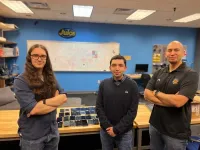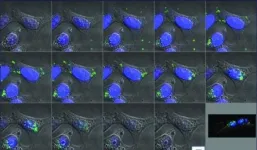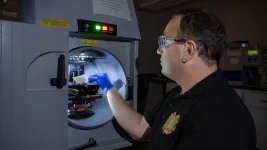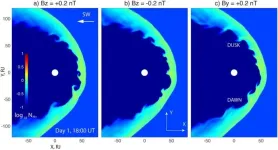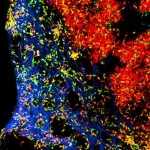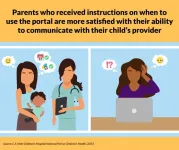(Press-News.org) Law enforcement agencies nationwide regularly sell items that are seized in criminal investigations or are unclaimed from lost-and-found inventories. Many of these items—vehicles, jewelry, watches and electronic devices like cellphones—end up at online auction houses.
People looking for a bargain can bid on cellphones in bulk, snatching up dozens at rock bottom prices for parts or other uses. This ultimately provides revenue for the police agencies, making for a good deal for everyone involved. Or is it?
A recent study by University of Maryland security experts found that many of the phones sold at police property auction houses are not properly wiped of personal data. The study, conducted over two years with cellphones bought from the largest police auction house in the U.S., uncovered troves of personal information from previous owners that was easily accessible.
Of the 228 phones that the UMD team successfully bid on, 61 (27%) contained personal data like social security numbers, credit card and banking information, passport data, pictures of driver’s licenses, and more.
“We were actually surprised at the level of personal information we found, and the ease by which we could access it,” said Dave Levin, an associate professor of computer science who led the UMD team.
Levin, a core faculty member in the Maryland Cybersecurity Center, first became interested in this topic through a casual conversation with a colleague. After determining there was a security breakdown—whether through police not wiping the phones, or auction houses not taking proper safeguards before shipping items to the highest bidder—Levin and several of his graduate students set out to explore the scale of the problem
The first step was to work closely with the university’s legal counsel and institutional research review board to determine the appropriate protocols needed to view any personal data.
“There were stringent guidelines in place—how each phone we received was catalogued, the processes we used to access the phones, and most importantly, what we would be legally required to do if we found any evidence of child abuse,” said Julio Poveda, a second-year computer science Ph.D. student who was part of the research team.
The UMD team did not come across any evidence of child abuse, but did uncover other information that was unsuitable for public dissemination, such as depictions of adult nudity and drug use.
Some of the phones they accessed had been used in criminal activities like identity theft, a discovery Levin found particularly troubling.
“It’s as if people that were victims of identity theft were being ‘re-victimized’ by having their personal information available again for anyone to see,” he explained.
The UMD team determined that some of the phones had been used by sex workers, with text messages between the workers and their clients still intact.
“It's important to remember that your phone does not just have your data, it has data from anyone who has communicated with you,” said Richard Roberts, a sixth-year computer science Ph.D. student and lead author of the study.
Roberts, who presented the team’s academic work at a major security conference earlier this year, said that out of the 61 phones the researchers accessed, they determined that there had been some form of digital contact with more than 7,000 people.
Levin, Poveda and Roberts are all security experts, but decided against using using any type of sophisticated digital forensics for their study. “We wanted to attempt to gain access to any cellphone data using techniques that someone on the street might use,” Roberts said.
The researchers were shocked at how easy it was. One of the phones arrived with a sticky note attached with the phone’s passcode in plain view, a leftover from the originating police agency that had already legally hacked the phone. Multiple other phones had PINs or passcode patterns that were easy to guess.
“Sadly, passcodes like 1-2-3-4 are still in common use today,” Levin said.
Last October, the researchers reached out to the auction house where they purchased the phones. The company—PropertyRoom.com, which bills itself as the largest police auction house in the U.S. working with more than 4,400 law enforcement agencies—promised to investigate the problem. Shortly after that, the company stopped selling bulk lots of phones altogether for a short period, then started again, prompting the researchers to purchase another batch.
“We found that PropertyRoom had started wiping the phones but failed to wipe the phones’ [Secure Digital] cards, which in several cases had partial backups of the phones’ contents,” Levin said.
After pinging the company again to inform it of this oversight, the UMD researchers received no further response.
A subsequent investigative report by a local television station prodded the company to publish a message on its website stating it was aware of the security concerns and was taking corrective measures.
From a security standpoint, Levin said, police agencies should avoid auctioning used cellphones. “Just destroy them,” he said. “[The police agencies] don’t get that much money in return, and the potential damage far outweighs any financial incentives.”
He also suggested that people take better precautions in the event their phone is lost or stolen and ends up being resold.
“Use your phone under the assumption that somebody else might later become its legal owner,” Levin said. “Set a passcode that is hard to guess, minimize the private information that’s easy to access, and remotely wipe your phone if it is lost or stolen. Otherwise, our study shows just how easy it is for someone to gain an incredible amount of access to your private information.”
END
UMD researchers uncover privacy risks in cellphones purchased at police auctions
Their two-year study found that 27% of the phones they successfully bid on contained personal data
2023-07-17
ELSE PRESS RELEASES FROM THIS DATE:
Bacterial protein found in the urogenital tract may contribute to reduced fertility, birth defects
2023-07-17
A team of researchers from the University of Maryland School of Maryland’s (UMSOM) Institute of Human Virology (IHV), a Center of Excellence of the Global Virus Network (GVN), published new findings that emphasize the crucial role of the urinary and genital tract microbiota in adverse pregnancy outcomes and genomic instability that originate in the womb during fetal development.
The study, published on July 17 in the Proceedings of the National Academy of Sciences of the United States of America (PNAS), established a new link between genomic instability and a protein from Mycoplasma fermentans, a kind of bacterium that commonly ...
Picky green sea turtle has travelled to the same place to eat for generations
2023-07-17
For approximately 3,000 years, generations of green sea turtles have returned to the same seagrass meadows to eat. This was discovered by Willemien de Kock, a historical ecologist at the University of Groningen, by combining modern data with archaeological findings. Sea turtles migrate between specific breeding places and eating places throughout their lives–this much was known. But the fact that this stretches over many generations highlights the importance of protecting seagrass meadows along the coasts of North Africa. The results were published in PNAS on July 17.
When young green ...
How skin cancer virus outcompetes host cell replication
2023-07-17
University of Pittsburgh researchers have shown for the first time how Merkel cell polyomavirus (MCV), which causes an aggressive skin cancer called Merkel cell carcinoma, initiates DNA replication in host cells.
Published today in the journal PNAS, the study sheds light on the fundamental question of how viruses override their host cells’ carefully regulated DNA replicating system to make hundreds of new copies of themselves.
“Understanding how MCV replicates gives us really important clues about ...
All about the Benjamins: Researchers decipher the secrets of Benjamin Franklin’s paper money
2023-07-17
Benjamin Franklin may be best known as the creator of bifocals and the lightning rod, but a group of University of Notre Dame researchers suggest he should also be known for his innovative ways of making (literal) money.
During his career, Franklin printed nearly 2,500,000 money notes for the American Colonies using what the researchers have identified as highly original techniques, as reported in a study published this week in the Proceedings of the National Academy of Sciences.
The research team, led by Khachatur ...
Redlining linked to higher heart failure risk among Black adults in US
2023-07-17
Research Highlights:
An analysis of more than two million adults in the U.S. found that present day heart failure risk was higher among Black adults who lived in zip codes historically impacted by redlining compared to Black adults living in non-redlined areas.
Redlining did not have the same impact on heart failure risk among white adults living in historically redlined zip codes.
Among Black adults living in historically redlined communities, approximately half of the excess risk of heart failure appeared to be explained by higher levels of socioeconomic distress.
Embargoed until 1 p.m. CT/2 p.m. ET Monday, July 17, ...
Racial disparities discovered in patients with cardiac devices
2023-07-17
Black patients with implantable cardioverter defibrillators (ICDs) have a significantly higher burden of disease than white patients with the same device, according to a new study from University of Rochester Medical Center (URMC) cardiology researchers. Analyzing data from clinical trials conducted over a 20-year period by the Clinical Cardiovascular Research Center (CCRC) at URMC, investigators concluded that not only did Black patients with ICDs tend to be significantly younger than white patients, but they also had a higher ...
SwRI team identifies giant swirling waves at the edge of Jupiter’s magnetosphere
2023-07-17
SAN ANTONIO — July 17, 2023 —A team led by Southwest Research Institute (SwRI) and The University of Texas at San Antonio (UTSA) has found that NASA’s Juno spacecraft orbiting Jupiter frequently encounters giant swirling waves at the boundary between the solar wind and Jupiter’s magnetosphere. The waves are an important process for transferring energy and mass from the solar wind, a stream of charged particles emitted by the Sun, to planetary space environments.
Jake Montgomery, a doctoral student in the joint space physics program ...
Immune cells in single file
2023-07-17
The cells of the immune system circulate mainly in the blood and migrate into the body's tissues after an inflammation. Some types of immune cells, however, are permanently located in the tissues, where they come together to form three-dimensional networks.
How do these networks form and how are they maintained? For the long-lived macrophages (phagocytes), the answer is already known: They settle in so-called niches. These are environments of connective tissue cells that supply the macrophages with nutrients and keep them ...
New research shows babies’ immunological weak spot and strength
2023-07-17
NEW YORK, NY--A pair of new studies led by researchers at Columbia University explains why babies get so many common respiratory infections and identifies a specialized cluster of immune cells found only in babies that help them better cope with new pathogens.
“We know little about how the immune system develops throughout life, and most of what we know about immune system development in children comes from animal studies,” says Donna Farber, PhD, an expert in immune system development at Columbia University ...
National Poll: Less than half of parents utilize patient portal benefits for their children
2023-07-17
ANN ARBOR, Mich. – For many busy families, online access to a child’s health provider for medical advice, health records or prescription refills is likely a convenient option.
Yet, only 43% of parents have set their child up for a patient portal – an online tool allowing communication between patients and medical providers – and others may not be optimizing portal use, suggests the University of Michigan Health C.S. Mott Children’s Hospital National Poll on Children’s Health.
“Patient portals offer a wide range of benefits, including decreasing unnecessary hassles for providers and patients and improving access to both the medical ...
LAST 30 PRESS RELEASES:
Novel camel antimicrobial peptides show promise against drug-resistant bacteria
Scientists discover why we know when to stop scratching an itch
A hidden reason inner ear cells die – and what it means for preventing hearing loss
Researchers discover how tuberculosis bacteria use a “stealth” mechanism to evade the immune system
New microscopy technique lets scientists see cells in unprecedented detail and color
Sometimes less is more: Scientists rethink how to pack medicine into tiny delivery capsules
Scientists build low-cost microscope to study living cells in zero gravity
The Biophysical Journal names Denis V. Titov the 2025 Paper of the Year-Early Career Investigator awardee
Scientists show how your body senses cold—and why menthol feels cool
Scientists deliver new molecule for getting DNA into cells
Study reveals insights about brain regions linked to OCD, informing potential treatments
Does ocean saltiness influence El Niño?
2026 Young Investigators: ONR celebrates new talent tackling warfighter challenges
Genetics help explain who gets the ‘telltale tingle’ from music, art and literature
Many Americans misunderstand medical aid in dying laws
Researchers publish landmark infectious disease study in ‘Science’
New NSF award supports innovative role-playing game approach to strengthening research security in academia
Kumar named to ACMA Emerging Leaders Program for 2026
AI language models could transform aquatic environmental risk assessment
New isotope tools reveal hidden pathways reshaping the global nitrogen cycle
Study reveals how antibiotic structure controls removal from water using biochar
Why chronic pain lasts longer in women: Immune cells offer clues
Toxic exposure creates epigenetic disease risk over 20 generations
More time spent on social media linked to steroid use intentions among boys and men
New study suggests a “kick it while it’s down” approach to cancer treatment could improve cure rates
Milken Institute, Ann Theodore Foundation launch new grant to support clinical trial for potential sarcoidosis treatment
New strategies boost effectiveness of CAR-NK therapy against cancer
Study: Adolescent cannabis use linked to doubling risk of psychotic and bipolar disorders
Invisible harms: drug-related deaths spike after hurricanes and tropical storms
Adolescent cannabis use and risk of psychotic, bipolar, depressive, and anxiety disorders
[Press-News.org] UMD researchers uncover privacy risks in cellphones purchased at police auctionsTheir two-year study found that 27% of the phones they successfully bid on contained personal data
